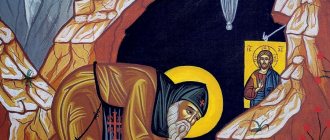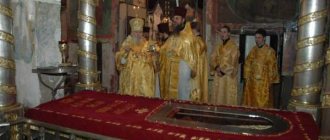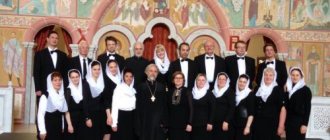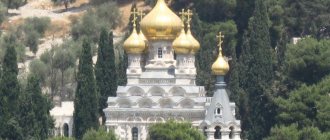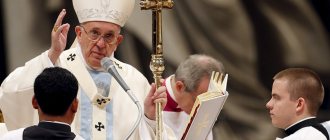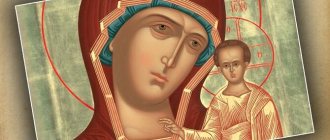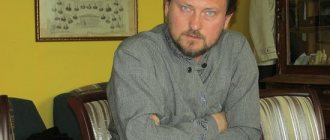| Kiev-Pechersk Lavra |
Ukrainian Orthodox Church
, a self-governing Church with rights of broad autonomy within the Moscow Patriarchate
- Official sites:
- Canonical territory: Ukraine and the Republic of Crimea
- Liturgical language: main Church Slavonic
- Calendar: Julian
- Cathedrals: Anthony-Feodosievsky in the Kiev-Pechersk Lavra (also in the Lavra the residence of the Metropolitan and the institution of the Metropolis), Resurrection in Kiev (under construction)
- Primate: His Beatitude Onuphry, Metropolitan of Kiev and All Ukraine
- Composition: 109 bishops; 53 dioceses; 12,409 clergy (2019) [1], 12,069 parishes (2017), 258 monasteries (2019) [1]; 17 religious educational institutions (2017) [2]; 30 million members (2009) [3]
- On the map: Yandex.Map, Google map
| Map of dioceses in Ukraine as of July 20 and August 25, 2012. From the website of the Synodal Department for Monasteries and Monasticism monasterium.ru |
Dioceses
- Kyiv
- Alexandria
- Baltskaya
- Belotserkovskaya
- Berdyansk
- Borispolskaya
- Vinnytsia
- Vladimir-Volynskaya
- Voznesenskaya
- Volynskaya
- Gorlovskaya
- Dzhankoyskaya
- Dnepropetrovsk
- Donetsk
- Zhytomyr
- Zaporozhye
- Ivano-Frankivsk
- Izyumskaya
- Kamenets-Podilskaya
- Kamenskaya
- Kirovogradskaya
- Konotopskaya
- Kremenchugskaya
- Krivorozhskaya
- Lugansk
- Lvovskaya
- Mogilev-Podolsk
- Mukachevo
- Nezhinskaya
- Nikolaevskaya
- Novokakhovskaya
- Ovruchskaya
- Odessa
- Polesskaya
- Poltavskaya
- Rivne
- Rovenkovskaya
- Romenskaya
- Severodonetsk
- Simferopol
- Sumskaya
- Ternopil
- Tulchinskaya
- Umanskaya
- Feodosiyskaya
- Kharkovskaya
- Kherson
- Khmelnitskaya
- Khustskaya
- Cherkasy
- Chernigovskaya
- Chernivtsi
- Shepetovskaya
In Moscow - the Moscow Patriarchate, in Kyiv - the Kiev Patriarchate?
In the 90s of the last century, a religious organization appeared in Ukraine - the Ukrainian Orthodox Church of the Kyiv Patriarchate (abbreviated as UOC-KP). Not a single Local Orthodox Church recognized this new structure. The UOC-KP was formed as a result of the coincidence of the ambitions of the church hierarchy and the authorities of the new independent state. This was the unofficial concept: an independent Ukraine should have an independent Church. Was the formation of the Kyiv Patriarchate legal from a canonical point of view?
Filaret (Denisenko) - head of the UOC-KP
Thousands of believers from all over Ukraine
Thousands of believers from all regions of Ukraine gathered on Sophia Square, most of them came to the capital in an organized manner. A large screen was installed on the square to broadcast the prayer service, as well as speeches by Ukrainian President Petro Poroshenko and a representative of the Ecumenical Patriarchate from Constantinople. Security measures have been strengthened in the center of Kyiv.
How the Orthodox were united in Ukraine
Church schisms: what are they?
The Orthodox Church was created by the Lord Jesus Christ (Gospel of Matthew, 16:18). Since apostolic times, She has been guided by certain rules. This allows us to preserve the spiritual unity of believers around the world. However, in church history there have been cases of separation of parts from the Universal Church. This is a split. Unlike heresy, when there is a distortion of the true Christian Teaching in dogmatic matters, church schism leads to a violation of canonical and disciplinary unity.
“We believe in the holy catholic Church. However, heretics and schismatics also call their communities churches. But heretics, thinking falsely about God, distort the faith itself, and schismatics, through lawless divisions, retreat from brotherly love, although they believe in the same thing as us. Therefore, neither heretics belong to the universal Church, which loves God, nor schismatics belong to it” (Blessed Augustine, 354-430).
The danger of church schism
Almost always, a schism occurs when the self-will of individual church hierarchs is condemned. At the Liturgy, they stop commemorating the ruling patriarch and diocesan bishop, who are considered supposedly “infected” with heresy. Orthodox psychologist Andrei Rogozyansky compiled a psychological portrait of a person who deviated into schism:
“At first a person does not see the reasons for his actions and thoughts. He allows self-will and condemnation, being busy with a detailed critical analysis of the words and actions of his superiors. An interesting thought comes to him: to make the conflict ideological. Really, it’s better to imagine this as a struggle of principles, standing for the truth, against ecumenism and union. And not at all with banal grumbling towards the authorities... The schismatic regards his position as definite and strong. It is enough to say the magic formula once: “I impute the reproaches of heretical bishops against me to nothing.” And: “chik-chirk, I’m in the house,” - a state of complete serenity sets in.”
The danger of falling into a church schism is that schismatics often take a position of unshakable rightness. They are supposedly the last and only guardians of the true Orthodox Teaching in the whole world.
“The schismatics, shedding crocodile tears over the “violation” of the canons of the Church, in fact long ago threw under their feet and trampled all the canons. Because genuine canons are based on faith in the unity and eternity of the Church. The canons were given to the Church; outside the Church they are invalid and meaningless. So the laws of the state cannot exist without the state itself” (Archpriest Alexander Fedoseev).
Personality of Filaret (Denisenko)
In the 1990s, Metropolitan of Kiev Filaret (secular name Mikhail Antonovich Denisenko) initiated a church schism in Ukraine. The personality of the Ukrainian hierarch is remembered by his contemporaries, who were associated with him in church affairs. These stories testify to the immoral, “unmonastic” qualities of the Kyiv Metropolitan. His church activities contributed to the aggravation of interfaith confrontations in the West of Ukraine.
Memoirs of Archbishop Jonathan of Kherson and Tauride
“I remember Filaret’s attitude towards the former Bishop of Zhytomyr Ioann Bodnarchuk, who later became one of the leaders of the UAOC. For some reason, Filaret did not like Vladyka John. He accused him of pride, waste, and even love of women. Perhaps Filaret was carrying out someone’s instructions, trying to force him out of Ukraine.
John was disliked by the authorities (he was a political exile for many years). And they obviously wanted to eliminate him. There was a danger of a revival of the UAOC, and the ideologists of the schism were looking for a canonical bishop for the UAOC. Vladyka John became a victim of Philaret’s blackmail. In fact, Filaret, with his attitude towards him, pushed him into the UAOC. For this, he later deprived Bishop John of his bishop’s rank at the Holy Synod of the Russian Orthodox Church.
But Filaret was especially unfair to the abbess of the Koretsky convent in the Rivne diocese, Abbess Natalia. To the nun who restored this monastery from the ashes. As Abbess Natalia told me, Evgenia Petrovna chose her monastery for spending her time. She came there with three small children (Vera, Lyuba, Andrey), allegedly adopted in Russia (Filaret was an inspector at the Saratov seminary), and forced the nuns to babysit them.
This violated the strict rules of the monastery and outraged the nuns. Just think, in a convent there are the small children of Evgenia Petrovna, who lives with them in the personal apartment of the Exarch of Ukraine. Abbess Natalia refused to accept Evgenia Petrovna into the monastery and incurred Filaret’s fierce hatred. Somehow, in a fit of anger, he hit her hard and she lost consciousness.”
Memoirs of Archbishop Feodosius of Poltava and Kremenchug
“Filaret, who took a vow of celibacy, openly cohabited with Evgenia Rodionova for many years. She was a friend of the wife of the first secretary of the Central Committee of the Communist Party of Ukraine Vladimir Shcherbitsky. The children of Filaret and Rodionova lived in Filaret’s chambers, and the exarch passed them off as his nephews. In reality, the affairs of the Kyiv Exarchate were run by Rodionova, who received from the clergy the nickname “Herodias of Kiev” for her tyranny. When Filaret's son tried to make his father's behavior public during the Soviet years, he ended up in prison on a false charge of theft.
Filaret's name has become odious. His life, behavior, and immorality cast a dark shadow over the entire Church and caused indignation among the clergy and believers. To get out of a difficult situation, at the Council of Bishops in Moscow in 1992, Filaret was offered to retire in order to repent of his sins before God. Before the Holy Cross and the Gospel, Filaret then promised to do this for the sake of church peace. Returning home, Filaret performed a comedy. He said: Moscow wants to get rid of him, because he is seeking autocephaly and wishes the best for Ukraine.”
Lust for power
On May 3, 1990, Patriarch of Moscow and All Rus' Pimen died. The Ukrainian Exarch Filaret became the locum tenens of the Patriarchal Throne. In the Orthodox community, rumors began to spread about the Metropolitan’s inadequacy for his position. The Local Council of the Russian Orthodox Church on June 7-8, 1990 elected a new Patriarch of Moscow and All Rus'. He became Metropolitan of Leningrad and Novgorod Alexy Ridiger (1929-2008). This “defeat” prompted Metropolitan Philaret to seek the maximum degree of autonomy for the UOC.
The secession of Ukraine from the USSR is associated with the coming to power of a nationalist-minded leadership. One of the areas of activity of the authorities was a break with Russia in all spheres of life, including the church. Ukrainian President Leonid Kravchuk wanted a Church independent from Moscow to strengthen the new government. The most influential Orthodox denomination, the Ukrainian Orthodox Church, was suitable for this.
Metropolitan Philaret, for personal reasons (to avoid punishment for violating monastic vows), supported the authorities’ desire to achieve a withdrawal from the jurisdiction of Moscow. In November 1991, on behalf of the hierarchs of the Ukrainian Church, a petition was sent to Patriarch Alexy II of Moscow and All Rus' to grant the UOC autocephaly (independence) with the establishment of the Kyiv Patriarchate.
The situation was complicated by the reluctance of many clergy, monastics and laity to leave the bosom of the Moscow Patriarchate. In April 1992, a Council of Bishops took place, which discussed the issue of autocephaly of the UOC. However, during the discussion it became clear that there was a tiny number of hierarchs who supported this idea. There was pressure on the face from the Ukrainian authorities.
The question was raised about the inconsistency of Metropolitan Philaret’s position with the proposal to “retire peacefully.” The Exarch of the Ukrainian Church on the Cross and the Gospel promised to convene a Council of the UOC and elect a new primate. Upon returning to the Kyiv See, Metropolitan Philaret refused to leave his post.
History[edit | edit code]
Since the fall of 1989, due to the cessation of state control over religious life in the USSR and in connection with the growth of national-separatist sentiments in Ukraine, the church-political situation in the republic has sharply worsened. In particular, among the priests and parishioners of the Ukrainian Exarchate, tendencies towards isolation from the Moscow Patriarchate were discovered.
Under Metropolitan Philaret (Denisenko)[edit | edit code]
On July 9, 1990, a meeting of the Ukrainian Episcopate was held in Kiev, which, having examined the current situation, stated that in the Western dioceses the religious conflict between Orthodox and Greek Catholics (Uniates) continues: the process of legalization of the Uniate Church in Western Ukraine has taken on the character of religious aggression against the Ukrainian Orthodox Church and terror against Orthodox Christians in this region; illegal actions of the Uniates are not stopped by local authorities, but on the contrary, the latter, when transferring churches to the Uniates, make discriminatory decisions against Orthodox Christians; in such conditions, the Orthodox, under pressure from the Uniates and local authorities supporting them, not wanting to accept the union, are often forced to move to the so-called Ukrainian Autocephalous Orthodox Church (UAOC).
In this regard, the episcopate of the Ukrainian Orthodox Church adopted an Appeal to His Holiness Patriarch Alexy II of Moscow and All Rus' and the Holy Synod of the Russian Orthodox Church, which contained proposals designed to strengthen the authority of the hierarchy of the UOC for more active opposition to schismatics from the UAOC and the Uniates.
The meeting of the Holy Synod of the Ukrainian Exarchate, held on July 10, 1990, approved this Appeal.
The Holy Synod of the Russian Orthodox Church on July 20, 1990 /journal No. 112/ became familiar with the resolution of the Synod of the UOC dated July 10, 1990 and decided to consider it at an extraordinary Council of Bishops. To prepare such a Council, a Commission was then formed under the chairmanship of His Grace Metropolitan Juvenaly of Krutitsy and Kolomna. October 1, 1990 /magazine No. 14/ The Holy Synod approved the activities of the above-mentioned Commission. Materials and proposals on this issue were sent to all the Right Reverends of the Russian Orthodox Church and submitted for discussion and approval by the Council of Bishops.
On October 25-27, 1990, under the chairmanship of His Holiness Patriarch Alexy, a Council of Bishops consisting of 91 hierarchs of the Russian Orthodox Church took place at the residence of the Patriarch and the Holy Synod in the St. Daniel Monastery. After consideration of the Appeal
The Council of Bishops determined:
|
The first Primate of the UOC was Metropolitan Filaret (Denisenko), who received the Blessed Letter from Moscow Patriarch Alexy II granting the Ukrainian Church independence and independence in its governance on October 28, 1990 in the historical cathedral of the Kyiv metropolitans - Hagia Sophia. The Patriarch's arrival was accompanied by riots and violence in the streets.
On November 22-23, 1990, the first Council of the Ukrainian Orthodox Church, convened by the decision of the Synod of the UOC, took place in Kyiv. The Council was attended by the ruling bishops of all twenty dioceses of the republic, representatives of theological schools, male and female monasteries, the Kiev Pechersk and Pochaev Lavras, clergy and laity[3].
On August 24, 1991, after the failure of the August putsch, the Supreme Council of Ukraine proclaimed the Act of State Independence
.
November 1-3, 1991 in the church of Rev. Anthony and Theodosius in the Kiev-Pechersk Lavra, Mt. Philaret convened a Council of the Ukrainian Orthodox Church, which was attended by the entire Ukrainian episcopate, delegates from 22 dioceses represented by clergy and laity elected at diocesan meetings, representatives of 32 monasteries, representatives of theological schools. The Council made the following Resolution:
|
On January 22, 1992, a bishops' meeting of the Ukrainian Orthodox Church took place in Kyiv, which adopted a new appeal to His Holiness Patriarch Alexy II, the Holy Synod and all bishops of the Russian Orthodox Church. It said, in particular: “certain forces, including those from Moscow, are sowing confusion among monastics, clergy and laity in certain areas and thereby actually working against Orthodoxy in Ukraine. Some Moscow media launched a slanderous campaign against the Primate of the Ukrainian Orthodox Church, trying to confuse the minds and hearts of ignorant people through dirty slander <...> in connection with the proclamation of the independent state of Ukraine, we believe that the time has come to grant full independence to the Ukrainian Orthodox Church, to grant autocephaly." .
The President of Ukraine L. M. Kravchuk also made a similar request to the Moscow Patriarch.
Soon, three bishops - Bishops of Chernivtsi Onuphry (Berezovsky), Ternopil Sergius (Gensitsky) and Donetsk Alypiy (Pogrebnyak) - disavowed their signatures under the Appeal
. The next day, January 23, by decision of the Synod of the UOC they were removed from their departments.
The Holy Synod of the Russian Orthodox Church, held on February 18 - 19, 1992, adopted an appeal to Metropolitan Philaret and the episcopate of the Ukrainian Orthodox Church with the demand to “immediately reconsider the decision of the Ukrainian Synod of January 23 in order to bring peace to the hearts of the brother bishops and to their grieving flock, now crying out for justice in the church. This will help preserve church peace and the unity of the Ukrainian Orthodox Church."
.
On March 31, 1992, the Bishops' Council of the Russian Orthodox Church opened in the Danilov Monastery in Moscow, whose meetings continued until April 5. 97 bishops took part in his actions. From April 1 to 4, the Council of Bishops discussed the petition of the UOC episcopate to grant the Ukrainian Orthodox Church autocephalous status. In his report at the Council, Metropolitan Filaret justified the need to grant the Ukrainian Orthodox Church autocephaly by political events: the collapse of the USSR and the formation of an independent Ukrainian State. After Metropolitan Philaret’s report, a discussion began in which most of the bishops participated. Bishop Proclus (Khazov) of Ulyanovsk and Melekess said in his speech that autocephaly will not save Orthodoxy in Ukraine unless a new Primate of the UOC is elected.
The turning point in the controversy was the proposal of Bishop Arkady (Afonin) of Magadan to replace the primate of the UOC “since Bishop Philaret does not meet the requirements for a person capable of uniting around himself all Orthodox clergy and laity in Ukraine.” The proposal was supported by Metropolitan Agafangel of Vinnitsa, Bishop of the Urals Anthony (Moskalenko), and other bishops. In connection with Metropolitan Philaret’s remark that he is subordinate only to the Council of Ukrainian Bishops, Archbishop Sergius (Fomin) of Solnechnogorsk objected: “The Ukrainian Orthodox Church is not yet autocephalous, it does not have its own closed internal issues that would not be within the competence of the Council of Bishops of the Russian Orthodox Church "
Summing up the discussion, the Chairman of the Council of Bishops, Patriarch Alexy II, said:
“We ask Bishop Philaret, for the good of Orthodoxy in Ukraine, for the sake of our unity, for the sake of the salvation of the Church in Ukraine, to resign from his post and to give the bishops of Ukraine the opportunity to choose a new Primate.”
After His Holiness’ speech, Metropolitans of Krutitsa Yuvenaly (Poyarkov), Vladimir of Pskov (Kotlyarov), Orenburg Leonty (Bondar), and Archbishop of Smolensk Kirill (Gundyaev) insisted on Metropolitan Philaret’s resignation from his post. Metropolitan Philaret persisted and refused to do this. His reluctance led to more harsh speeches from the bishops. Metropolitan Vladimir (Kotlyarov) made a proposal to vote on the issue of removing Metropolitan Philaret from his post.
Then Metropolitan Philaret made the following statement:
“I feel that a prophet Jonah is needed, and I am ready to be one. But I ask that this Jonah be abandoned so that the sea does not rage in Ukraine, therefore I ask that the Ukrainian episcopate be allowed to hold elections for a new Primate of the Ukrainian Orthodox Church in Kyiv. I give my archpastoral word that such a Council will be held and that no pressure will be exerted. Patriarch Alexy will approve the new Primate by his decree. The Ukrainian Orthodox Church must fully exercise its rights given to it by the Council of Bishops in 1990. I also ask that you give me the opportunity to continue serving at the Throne of God and not send me to rest.”
His Holiness the Patriarch thanked Metropolitan Philaret for his willingness to resign from his duties as Primate of the Ukrainian Church, and also promised that he would be able to continue his archpastoral service in one of the departments of Ukraine.
Based on the statement of Metropolitan Philaret, the Council of Bishops adopted the following definition:
“The Council of Bishops took note of the statement of His Grace Philaret, Metropolitan of Kiev and All Ukraine, that in the name of church peace he will submit a petition at the upcoming Council of Bishops of the Ukrainian Orthodox Church to relieve him of his duties as Primate of the Ukrainian Orthodox Church. The Council of Bishops responded with understanding to the position of His Grace Metropolitan Philaret, expressing gratitude to him for his many years of archpastoral work at the Kyiv See, and blessed him to carry out episcopal service in another see of the Ukrainian Orthodox Church.”
The schismatic activities of Metropolitan Philaret (Denisenko)[edit | edit code]
On April 7, 1992, on the feast of the Annunciation, during a service in the Vladimir Cathedral, Metropolitan Philaret announced his refusal to resign from the post of Primate of the Ukrainian Orthodox Church, that he, “having weighed the difficult situation in the Church and the requests of the flock and the episcopate of the UOC, decided to stay.”
On April 14, a press conference was held at the Ukrinformagency, at which Metropolitan Philaret stated:
“I passed Calvary. Such a Council was the first in the 30 years of my tenure as a bishop. I was given the Certificate of Patriarch of Moscow and All Rus' Alexy II in 1990 for lifelong leadership of the UOC. Therefore, I believe that in the current difficult situation in Ukraine, I cannot follow the lead of the bishops of the Russian Orthodox Church and leave the Ukrainian flock to their mercy.”
The statement received wide coverage in the media and indicated an open break between Mt. Philaret and the Moscow Patriarchate.
On April 17, 1992, Patriarch Alexy asked M. Philaret in a letter whether the information about his decision not to leave his post was true. There was no response from Kyiv. There was no response to the invitation to come to the meeting of the Holy Synod of the Russian Orthodox Church, which was supposed to take place on May 6-7, 1992.
On April 30, a meeting of representatives of the clergy, monasteries, Orthodox brotherhoods and laity took place in Zhitomir. Among the bishops present at it were Metropolitan Agafangel of Vinnytsia, Archbishop Job (Tyvonyuk) of Zhytomyr, Bishop Vasily of Kirovograd, Bishop Onuphry of Chernivtsi, Bishop Sergius of Ternopil, Bishop Alypiy of Donetsk. The meeting expressed distrust of M. Philaret in view of his deception of the Council of Bishops, to which he promised before the Cross and the Gospel to leave the post of Primate of the UOC voluntarily. The meeting participants qualified his refusal to fulfill this promise as an oath. The meeting also stated that it insists on convening a Council of Bishops of the UOC on May 11, at which the resignation of M. Philaret from the post of Primate of the UOC should be satisfied.
At the same time, an Appeal was received in the name of His Holiness Patriarch Alexy II, under which the Committee for the Defense of Orthodoxy collected 29 thousand signatures:
“In connection with gross violations of the canons of the Church by Metropolitan Philaret of Kiev and All Ukraine in relation to the laity and clergy devoted to the Church, his use of the Church in Ukraine for political and personal purposes, aggravating schism and unrest, which as a result leads to a decline in the authority of the Orthodox Church in Ukraine, We ask Your Holiness to apply the fullness of canon law in relation to Metropolitan Philaret.
We, the Orthodox of Ukraine, express our desire to see Metropolitan Vladimir (Sabodan) at the Kyiv See.”
On May 6-7, 1992, an extended meeting of the Holy Synod of the Russian Orthodox Church took place in Moscow, in which the bishops of the Ukrainian Orthodox Church also took part. Metropolitan Filaret, its permanent member, did not come to the meeting. The Holy Synod had a judgment on the new situation in the Ukrainian Orthodox Church that arose in connection with the public statements of Mister Philaret. The Synod decided:
“1) Decisively condemn the statements of Metropolitan Philaret regarding the Council of Bishops, for they do not correspond to the truth and mislead the flock. Qualify them as blasphemy against the conciliar mind of the Church, acting under the guidance of the Holy Spirit.
2) Until May 15 this year. Metropolitan Philaret is ordered to convene the Council of Bishops of the UOC, submit his resignation from the post of Primate of the Ukrainian Orthodox Church and actually resign, as he solemnly promised before the Cross and the Gospel.
3) In connection with the state of emergency that has developed in the Ukrainian Orthodox Church, Metropolitan Philaret is prohibited from acting as Primate during the period before the Bishops’ Council of the UOC, namely: convening the Synod, ordaining bishops, issuing decrees and appeals concerning the Ukrainian Orthodox Church. The exception is the convening of the Council of Bishops of the UOC to accept his resignation and elect a new Primate of the Ukrainian Orthodox Church.
4) All prohibitions and punishments imposed or could be imposed on bishops, clergy and laity in connection with their expressed support for the determination of the Council of Bishops of the Russian Orthodox Church of April 2, 1992, are considered illegal and therefore invalid.
5) In case of failure to comply with the determination of the Council of Bishops of the Russian Orthodox Church and this resolution, bring Metropolitan Philaret to the court of the Council of Bishops of the Russian Orthodox Church.”
Mr. Filaret ignored the decisions of the Synod. In this extraordinary situation, on May 21, the Synod decided to temporarily transfer the functions of the Primate of the Ukrainian Orthodox Church to the oldest ordained archpastor in Ukraine - Mt. Nikodim (Rusnak) of Kharkov and Bogodukhovsky. He was instructed to convene a Council of Bishops before the Feast of the Holy Trinity in order to accept the resignation of Metropolitan Philaret and elect a new Primate of the Ukrainian Church. Mr. Filaret considered the decision of the Synod to be unauthorized.
On May 26, 1992, Filaret gathered his supporters in Kiev, calling the meeting the All-Ukrainian Conference in Defense of the Canonical Rights of the Ukrainian Orthodox Church
.
The conference
rejected the decisions of the Holy Synod of May 7 and 21, 1992 and condemned those Ukrainian bishops who refused to recognize Mister Philaret as their first hierarch.
The Conference
participants also sent an appeal to Patriarch Bartholomew of Constantinople:
“In connection with numerous non-canonical interventions of the Moscow Patriarchate in the internal affairs of our Church and on the basis that Ukraine became an independent state on December 1, 1991, we bring to the attention of Your Holiness that the Act of 1686 on the transfer of the Kyiv Metropolis to the Moscow Patriarchate ceases to be valid .
We turn to Your Holiness with hope that you will take this into account and take the necessary actions to canonically streamline the current situation of our Church.”
Kharkov Cathedral[edit | edit code]
Fulfilling the Decree of the Holy Synod of May 21, 1992, Mt. Kharkov and Bogodukhov Nikodim (Rusnak), on May 27 convened and headed the Council of the Ukrainian Orthodox Church, which, at the place where it was held, went down in the history of the UOC as Kharkov.
On May 14, Metropolitan Nikodim sent Philaret a letter in which he asked him to fulfill his promise and convene a Council of Bishops “for the sake of peace in our Church.” But there was no answer.
17 archpastors arrived at the Bishops' Conference.
The Council made some changes and additions to the Charter of the UOC concerning the procedure for electing and the status of the Primate of the UOC; The composition of the Synod of the UOC was also expanded - to seven people, four of whom are permanent. The name of the state within which the UOC carries out its mission was changed. In its actions, introducing changes and additions to the Charter on the governance of the Ukrainian Orthodox Church
, the Council of Bishops was guided by Section XIV, paragraph 2 of the previously valid Charter, which stated: “The Council of Bishops has the right to make corrections to this Charter, with subsequent approval by the Council of the Ukrainian Orthodox Church.”
The main act of the Kharkov Council was the expression of no confidence in Metropolitan Philaret, his removal from the Kyiv See, from the post of Primate of the Ukrainian Orthodox Church and his enrollment in connection with the failure to fulfill the oath promise to resign from the post of Primate of the Ukrainian Church, given by him at the Council of Bishops of the Russian Orthodox Church on March 31 - 5 April 1992. This act was committed in the absence of Metropolitan Philaret, who refused to attend the Council of Bishops of the UOC and ignored the calls repeatedly sent to him. For committing schismatic actions, the Council, as a pre-trial measure, banned Metropolitan Philaret from serving in the priesthood until the final decision on this issue by the Council of Bishops of the Russian Orthodox Church.
After this, on the basis of Section V, paragraphs. 12.13 of the Charter, the election of a new primate of the UOC took place. In the second round, Mr. Vladimir (Sabodan) received 16 votes and was elected Metropolitan of Kyiv and Primate of the Ukrainian Orthodox Church.
Under Metropolitan Vladimir (Sabodan)[edit | edit code]
On June 26, 1992, the first Council of the Ukrainian Orthodox Church began its work in the Kiev-Pechersk Lavra under the chairmanship of His Beatitude Vladimir. The entire episcopate of the UOC, representatives of the clergy and laity of all dioceses, monasteries and theological schools took part in the work of the Council. As the highest legislative body in the Church, the Council decided: “To recognize the Council of Bishops in Kharkov of May 27-28, 1992 as canonical and to approve all its acts and decisions that are considered legal.” The Council unanimously approved all the amendments made at the Kharkov Council of Bishops to the text of the Charter on the Administration of the UOC, and testified to its unchangeable unity and fidelity to Holy Ecumenical Orthodoxy.
The participants of the Council unanimously condemned the activities of the deposed Monk Philaret and confirmed the decision to release him from the post of Primate of the UOC and depose him from the priesthood. The Council addressed a request to the President of Ukraine L. Kravchuk, calling on him to “help [Metropolitan Vladimir] in all official matters to restore order and peace in the Church.” The Council made a statement regarding the so-called All-Ukrainian Orthodox Council
, dissociating himself from his decisions as illegal.
At the Jubilee Council of Bishops in Moscow in August 2000, the Primate of the Ukrainian Orthodox Church, Mt. Vladimir, spoke on the situation of the Orthodox Church in Ukraine. There was a heated debate regarding changes in the canonical status of the UOC. As a result of discussing the issue, it was decided to refrain from any actions that could lead to a deepening of the regional division of Ukraine and cause new church schisms.
The Jubilee Council of Bishops of the UOC in 2000 adopted the Definition of the Ukrainian Orthodox Church, which confirmed the status of managerial independence and independence of the Ukrainian Orthodox Church. Having considered the Appeal of the Episcopate of the UOC on “clarification of the canonical status” of the Orthodox Church in Ukraine, the Council on November 22 stated:
“Being in canonical unity with the Moscow Patriarchate, we have a real opportunity to influence its church policy, which is in no way possible to do from the outside. At the same time, the UOC, together with the Russian Orthodox Church, represents the largest jurisdiction with an influential and authoritative voice in the Orthodox world. In addition, our canonical unity makes an invaluable contribution to the creation of friendly relations between Ukraine and Russia and is the key to peace and stability - both between states and within them. If the political forces in Ukraine cannot take advantage of the opportunities of the UOC on issues in which our interests coincide, then this happens not through its weakness or connection with Moscow, but through the lack of a constructive dialogue with the Church. Unfortunately, our opponents are not able to think long-term, since their thoughts turned out to be locked within the narrow boundaries of the primitive Bolshevik-nationalist worldview or the commercialism of Western ideology <...>"
.
In 1995, Ecumenical Patriarch Bartholomew accepted the UOC in the USA and the UAOC in the diaspora into his jurisdiction. The current situation, as well as constant appeals from Ukrainian government officials, gave the Ecumenical Patriarch reason to intervene in the issue of overcoming the crisis in Orthodoxy in Ukraine. The latter, in April 1996, declared his readiness to help the UOC in gaining independence, even without corresponding petitions from the Churches, but only on the basis of a personal appeal from the President of Ukraine L. Kuchma.
In 1997, the tension between Constantinople and Moscow caused by the Estonian issue subsided. This led to the fact that at the meeting of the Patriarchs in Odessa in September, Mr. Bartholomew confirmed that the schism of Ukrainian Orthodoxy is an internal church issue of the Moscow Patriarchate.
In February 2000, the head of the UAOC Dimitry (Yarema) died. According to his will, the duties of the head of the UAOC were to be transferred to Metropolitan Constantine of Irinupol (Bagan) from the UOC in the USA, who was accepted into the jurisdiction of Constantinople in 1995. The implementation of such a step in practice would mean the transition of the UAOC under the omophorion of the Patriarchate of Constantinople. The delegation of the Russian Orthodox Church expressed its concern about this course of events at the negotiations in Geneva on March 28-29, 2000. She warned the Patriarchate of Constantinople that possible measures of Constantinople, without a canonical basis, to accept schismatics in Ukraine into its jurisdiction would inevitably entail indignation on the part of believers under the canonical jurisdiction of the UOC.
During negotiations between representatives of the Moscow and Constantinople Patriarchates in June 2000 in Zurich, representatives of the Constantinople Patriarchate proposed holding negotiations with the participation of representatives of the UOC, schismatic groups, as well as representatives of government agencies of Ukraine. Thus, a situation has arisen in which Constantinople and Moscow have taken different positions regarding the negotiation process. If the Patriarchate of Constantinople considers it acceptable for the active participation of the Ukrainian authorities in resolving the Ukrainian church issue, then the Moscow Patriarchate takes the position that this is an internal church issue, and therefore should be resolved without outside influence.
On June 1, 2000, negotiations between a delegation of the Ukrainian government led by Deputy Prime Minister M. Zhulinsky and Patriarch Bartholomew of Constantinople took place. Zhulinsky conveyed an oral greeting from the President of Ukraine, asking Patriarch Bartholomew to assist Ukrainian Orthodoxy in unifying and obtaining autocephaly. His Holiness Bartholomew responded that the Ecumenical Patriarchate is clearly interested in the speedy receipt by Ukrainian Orthodoxy of canonical autocephaly, which can only be given by the Mother Church, that is, the Ecumenical Patriarchate; “The Moscow Patriarchate,” he said, “does not have such a right.” In support of his thesis, Bartholomew recalled that the Orthodox Church in America, which received the status of autocephaly from the Russian Orthodox Church in 1970, is still not recognized as such by Constantinople. The Autonomous Church of Japan is in the same situation.
"Ukrainian Orthodox Church": child of the schism
On May 27-28, 1992, the Ukrainian Orthodox Church, represented by the Council of Bishops, recognized Filaret Denisenko’s guilt for perjury. He was released from his post and defrocked.
“For the cruel and arrogant attitude of Metropolitan Philaret (Denisenko) towards the subordinate clergy, dictatorship and blackmail,
introducing temptation among believers through their behavior and personal life,
perjury,
public slander and blasphemy against the Council of Bishops,
performing sacred rites, including ordinations in a state of prohibition,
causing a schism in the Church:
To expel Metropolitan Philaret (Denisenko) from his existing rank, depriving him of all degrees of the priesthood and all rights associated with being in the clergy” (Judicial act of the Council of Bishops of the Russian Orthodox Church of June 11, 1992).
Primates
- Anthony (Khrapovitsky) (1918 - 1919 (1921))
- Alexy (Hromadsky) (July 19, 1941 - May 7, 1943)
- Damascene (Malyuta) (June 6, 1943 - 1944)
- Panteleimon (Rudyk) (April 1944 - April 5, 1946), archbishop. Kyiv and Galitsky
[13] - Filaret (Denisenko) (October 25-27, 1990 - April 1992)
- Nikodim (Rusnak) (April - May 27, 1992) acting primate, Metropolitan. Kharkovsky.
- Onufriy (Berezovsky) (February 24 - August 13, 2014), locum tenens of the metropolitan see, metr. Chernivtsi
Formation of the Kyiv Patriarchate
At the end of June 1992, the defrocked monks Filaret (Denisenko) and Jacob (Panchuk), together with the false bishops of the Ukrainian Autocephalous Orthodox Church and government officials, formally organized the Ukrainian Orthodox Church of the Kyiv Patriarchate. At the same time, it was announced that the church treasury of the UOC would be transferred to the ownership of the newly established organization. The “Ukrainian Orthodox Church” of the Kyiv Patriarchate was created without the participation of the clergy. The will of the Orthodox Ukrainian people was not taken into account at all.
In Ukraine, nationalists captured many parishes and handed them over to the UOC-KP. So the schismatics took possession of the Kyiv Vladimir Cathedral. However, they failed to take possession of the Kiev-Pechersk Lavra.
Stauropegia
- Kiev-Pechersk Dormition Lavra (male)
- Pochaev Dormition Lavra (male)
- Glinskaya Mother of God-Nativity Hermitage (men's)
- Gorodnensky Alexander Nevsky Monastery (since December 20, 2012 [14], female)
- Gorodnitsky St. George Monastery (male)
- Zhitomir Anastasievsky Monastery (women)
- Zimnensky Svyatogorsky Assumption Monastery (women)
- Nemirovsky Trinity Monastery (women's)
- Sevastopol Paisievsky Monastery (male)
- Chopovichi Athos Monastery (women)
Formerly stauropegial
- Kagarlyk Varvara Monastery (March 15, 2013 - April 1, 2015 [15], female, now under the jurisdiction of the Belotserkovskaya diocese)
Non-canonical Ukrainian Orthodox Church of the Kyiv Patriarchate
According to historically established rules, certain conditions are necessary for granting autonomy to any Church. Among them are being on the territory of another state at a geographic distance from the Local Church, and the ethnic characteristics of the country’s population. The decision to grant autocephaly is made at the Church Council. At the same time, apostolic succession must be observed, that is, maintaining a continuous sequence of ordination of bishops.
Often schismatics say that the Church receives canonicity and the grace of the Lord, and not by the decision of the Council or the Holy Synod. This is true. But only one Church, created by the Savior in the Redemptive Sacrifice, has God's grace and legitimacy. Schismatic communities arise as a result of human sins: thirst for power, pride, self-love. Church Councils and the Holy Synod are the highest body of the Church. When a schism arises at the Council, they only state the fact of the schismatics’ relapse and persistence in the sin of pride, which deprives them of God’s saving grace.
“The various schismatic communities that have separated from the True Orthodox Church of Christ do not have the saving grace of God. And therefore they cannot be called, in fact, churches. After all, the Church is where the correct faith in God and fidelity to it are preserved, which Jesus Christ Himself preached and passed on to us through his apostles. Saint Cyprian of Carthage writes: “Outside the Church there cannot be not only Christian life, but also Christian teaching. Because any separation from the Church is certainly associated with a distortion of the faith” (Archbishop of Kirovograd and Novomirgorod Joasaph Guben).
The decision to create the UOC-KP was made not at the Council, but on the initiative and under pressure from government representatives. The so-called “Kiev Patriarchate” has no continuity in the ordination of bishops. Therefore, this religious organization is not canonical.
“There can only be one Church - this is the Church that the Lord Jesus Christ created. And the so-called churches that are created by schismatics or politicians are not real.
It is known that the boundaries of Churches have changed historically. This is not some fixed fact, it is a living process. But it is not proper for politicians to create any boundaries within the Church. This is an exclusively internal church issue” (Metropolitan Hilarion of Volokolamsk).
UOC MP in numbers
According to the UOC-MP, its parishioners include 35 million believers (more than 80% of the country’s population). As of November 30, 2022, the UOC-MP consists of 53 dioceses and 12 thousand 69 parishes. In the clergy of the church there are 85 bishops (52 diocesan and 33 vicars), 12 thousand 283 clergy, of which 11 thousand 312 are priests and 971 are deacons. There are 251 monasteries on the territory of Ukraine, in which 4 thousand 412 monks serve obedience (1 thousand 685 monks and monks, 2 thousand 727 nuns and nuns). In 17 religious educational institutions of the UOC-MP, 1 thousand 429 students study full-time.
“Ukrainian Orthodox Church”: current situation
The hierarchy of the canonical Church has repeatedly called on Monk Philaret to repent and leave his schismatic activities. At the Council of Bishops of the Russian Orthodox Church on February 18-23, 1997, the self-proclaimed “Patriarch of Kiev” was excommunicated from the Church and anathematized (cursed).
To this day, the UOC-KP as a separate independent religious organization is not recognized by any Autocephalous Orthodox Church.
At the end of 2022, with the support of the political authorities, the so-called “Unification” Council of all Churches of Ukraine was convened. As a result, a new religious structure emerged - the Orthodox Church of Ukraine (OCU). At the same time, it was reported that the activities of the UOC-KP were terminated. However, six months later, Filaret Denisenko initiated the convening of a new “Local Council”, where he announced the restoration of the UOC-KP.
Canonicity of the Sacraments in the UOC-KP
The sacraments performed have grace and salvific value only with the Orthodox confession of faith and the presence of apostolic succession of church hierarchs. Based on the violation of these conditions, the Sacraments performed in the UOC-KP are not canonical.
Firstly, in 2007, the “Ukrainian Orthodox Church” of the Kyiv Patriarchate approved the Historical-Canonical Declaration, calling into question the purity of faith among schismatics. Secondly, there is no apostolic succession in the UOC-KP. This Church was formed by the laity without the participation of bishops. As a result, all the “Sacraments” performed in Her are devoid of the grace of the Holy Spirit and are invalid. This is only an external repetition of the form of rituals.
“For causing a schism, its initiator and leader M. Denisenko, on the basis of church rules, was deprived not only of all sacred degrees and monasticism, but also excommunicated from the Church. Therefore, all his actions (which he blasphemously calls sacraments), and the actions of his subordinates, have nothing to do with the Church of Christ. They are not only graceless, but also blasphemous. Today, the “baptized” in the “Kiev Patriarchate” are accepted into the Orthodox Church through the Sacrament of Baptism, not rebaptism, but namely Baptism, since what schismatics perform is not a Sacrament” (Metropolitan of Kiev and All Ukraine Vladimir Sabodan, 1935-2014) .
